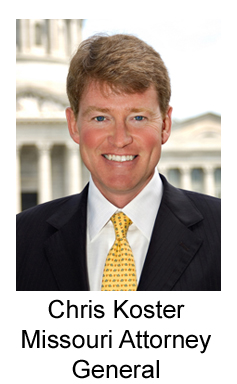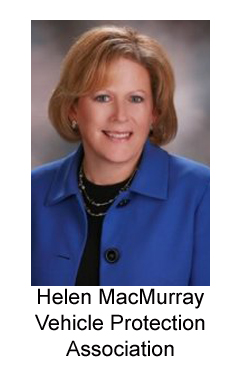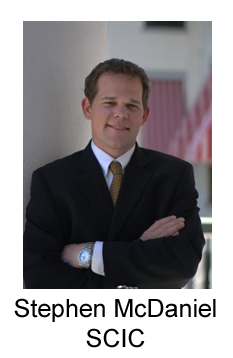Additive Product Warranties:
They may have found a loophole that allowed them to evade most service contract industry rules, but they couldn't escape the wrath of the customers they swindled, the regulators they duped, or the competitors their antics tarnished. Now a consensus is forming around the idea that everybody should play under the same set of rules.
Just when we thought the world was safe from those "expiring warranty" hucksters, it seems they've found a way to abuse product warranties to once again evade regulations.
This time, they're selling little bottles of engine coolants or lubricants that come with great big warranties that magically protect the vehicle's entire drivetrain. And while these little bottles of additives sell in the local auto parts store for $5 or $10, they're being sold by the "product warranty" guys for whatever the market will bear.
Task Force Convened

On Friday, April 16, Missouri Attorney General Chris Koster convened the first meeting of his Auto Service Contract Task Force.
Ironically, they met not to talk about vehicle service contract sellers, their pre-recorded sales pitches, or the legal circus developing around the collapse of local business US Fidelis. Instead, they met to discuss this latest scourge of marketers selling additive product warranties to unwary consumers as a kind of substitute for vehicle service contracts.
In many cases, it's the same set of characters that deployed the allegedly deceptive "expiring warranty" sales pitches in 2008 and 2009 to fast-talk consumers into buying a vehicle service contract. But this time they're selling bottles of liquid that are added to the crank case, radiator or fuel tank, and whose warranties somehow protect the entire vehicle from mechanical breakdowns.
The problem is, consumers aren't told they're spending thousands of dollars on a magical bottle of snake oil. They think they're buying a service contract. And after they've poured the magical elixir into their vehicle, or sometimes even if they just put it up on a shelf in the garage, they find out that refunds are out of the question. So they feel like they've been swindled, and their next call is to the Attorney General's office.
Sick and Tired
We spoke with four people who were at the task force meeting last week, and all four said this new round of marketing abuses needs to end soon. Representatives from the Attorney General's office and the Better Business Bureau said they are sick and tired of getting thousands of complaints, and representatives from industry groups such as the Vehicle Protection Association and the Service Contract Industry Council said they are sick and tired of all the bad publicity their law-abiding members encounter.
It's not about what's in the bottles or whether they do anything positive. Doug Ommen, Chief Counsel of the Missouri Attorney General's Consumer Protection Division, said the complaints have more to do with how the bottles are being sold than what's actually in them.
"I think there are some significant concerns about what's going on here, in terms of the marketing for auto additives," Ommen said. "The consumers that are being solicited for sales are often not being advised that they're buying a product. In fact, what seems to be at work here is that warranties are marketed -- specifically, auto warranties are being marketed -- and rather than the product being the core of the transaction, it's the protection that is the core of the transaction. And the additive seems to be something of a bonus, a surprise, or a gift."
Is It Insurance?
Usually, Ommen said, it's the other way around. The product is what makes the sale, and the warranty is an added bonus. But some of these additive warranty sales pitches don't even mention the product, because it's the protection that's being sold. And in Ommen's mind, if it's protection that's being sold, and if it's not a vehicle service contract, then it must be an insurance policy.
Ommen said that numerous consumers have complained to the Attorney General's office that they didn't know they were buying additives until it was too late. They received the bottles in the mail, and by then the marketers had their money, and refunds were impossible. So they weren't complaining about unfairly denied claims or whether the additives actually did anything. They never got that far. Instead, they were complaining that they didn't know they'd bought a bottle instead of a service contract.
Typically, the bottles were sold to people whose aging and high-mileage vehicles were difficult to cover with a traditional service contract. The marketers knew that such vehicles wouldn't qualify for a service contract. But rather than lose the sale, the marketer would switch gears and sell them a "product warranty," without mentioning the product being warranted. Say it fast enough and a consumer might think their vehicle was the product being covered.
Deception and Fraud Alleged
At the April 16 meeting, four consumers who'd filed complaints with the Attorney General's office and/or the local Better Business Bureau were asked to describe their buying experience to the attendees. One summed it up nicely by saying that if he knew he was buying a bottle instead of a service contract, there would have been no complaint, because there would have been no sale. He thought he'd bought a service contract.
Ommen said it really doesn't matter much whether the contents of the bottles are actually good for the vehicle. It's the disparity between the price being charged and the value of the bottle that's the issue. If the bottle sells for $50 without a warranty and $1,000 with a warranty, it's clear that the contents of the bottle matters less than the protection plan that accompanies it.
"Whether or not the bottle actually does something," Ommen said, "I'm not sure it matters, because that's not what the consumer is buying. All they're told about is this protection plan."
Service contracts, Ommen added, "are very useful products that serve a very good purpose." But these aren't service contracts, although consumers are led to believe that they are. "I think the problems we've seen are the independent marketers that are using deception and fraud, and not disclosing material information, and then also stalling and delaying the delivery of the contracts to create problems under the free look period are what has created the problems," he said.
Shake Well Before Using
So the efficacy of the products isn't the main issue. It's the way the transaction combines service contract-like pricing and a service contract-like promise of protection without mentioning that they're built around a bottle of liquid which, when sold over the counter in a local auto parts store, are offered for a fraction of the price and are sold without a warranty.
For instance, engine additives such as Novasyn R5, LuBoron, Boron CLS Bond, and Motor Silk make use of allegedly patented and trademarked, space-age technology invented by a U.S. government laboratory to reduce friction and lengthen vehicle life. Their claims of efficacy reek of snake oil, but that's not the point. Reducing friction is a good thing. Saving fuel is a good thing. Additives that do a better job than generic anti-freeze, transmission fluid or crank case oil are a good thing. Nobody disputes that.
The problem is the pricing, and how we make the jump from replacing a pint of engine oil to replacing a service contract. And how we get from a product with a money-back guarantee but no warranty, to one with a warranty but no refunds.
One Motor Silk distributor that sells bottles of the additive in packages priced between $16 and $78 has a 90-day money back guarantee for the product. But there's no mention of a product warranty.
This is normal. Besides the implied warranty that it won't ruin your engine, these liquids usually have no product warranties per se. Neither does gasoline. There may be quality and purity standards to consider. But there is no express or written warranty on these automotive fuels or fluids.
There's also no mention of a product warranty on the home page of the Motor Silk additive's manufacturer, Advanced Lubrication Technology. But right in the middle of an "about our products" page is a link to the home page of service contract administrator American Guardian Warranty Services Inc., which touts a heavy duty truck protection plan that's built around the additive. It covers the timing chain, transmission, torque converter, axle shafts and numerous other parts that one would assume are untouched by the engine oil additive. How's that work?
Insurance in a Bottle?
However, we're not arguing whether coolant or lubrication is good. We're arguing whether deceptive sales practices are being used to close the deal. And if the deception doesn't come to an end soon, we might be arguing whether the marketers are selling insurance without a license. And that would be a serious escalation of the stakes.
"If what is being sold is the protection, and it's a transfer of risk, it at least raises the questions of whether it's not actually selling insurance," Ommen suggested. In Missouri, as in many other states, legislation was passed years ago that specifically removes service contracts from the realm of insurance regulation, as long as certain hurdles are met. But these additives can't be service contracts, he said, because service contracts are sold separately from products.
"I can't see how to shoe-horn this thing into a service contract," he said, "because they do attach a product to it. What I think they actually may be doing is selling insurance."
But again, the focus right now isn't so much on what they're selling as how they're selling it. At last Friday's meeting, Ommen said, the first step was to bring everyone up to speed as to the scope of the problem. The second step was to see whether industry self-regulation would be sufficient to end the abuses, or if additional legislation would be necessary.
What Bottle?
Tracy Hardgrove, vice president of operations and administration at the Better Business Bureau of Eastern Missouri & Southern Illinois, said her office has also been receiving complaints about the sales tactics and no-refund policies for quite some time now. And most of them say the same thing as those that reach the Attorney General's office: they didn't know they were buying a bottle. They thought they were buying a service contract.
"A lot of consumers -- and I'm talking thousands here -- have told the Better Business Bureau that they were told one thing, and when they tried to use it, they found out that was not the case," Hardgrove. And it seems that just when the "robocall" complaints were dying down last year, the additive warranty complaints took their place. And many times it's the same marketing companies as before, once again using misrepresentations as a sales tactic.
For instance, before US Fidelis declared bankruptcy, it sold numerous brands of traditional service contracts on behalf of several administrators and finance companies. But it also sold additive warranties, such as those administered by the Choice Manufacturing Company Inc. of Mahwah NJ, which itself sells vehicle service contracts as well as additives branded as "product guarantees" under labels such as The Choice, The Engine Doctor, and The Prolong Plus Product Warranty.
Hardgrove said that although a few of the BBB complaints alleged that the additives did some damage to the vehicles, most of the complaints revolved around the no-refund policies, the 90-day exclusion period, or the allegedly deceptive sales practices that were used to mislead or confuse the consumer about what they were actually buying. Nobody at last Friday's meeting made any claims that the additives do anything beneficial for the vehicle, but like Ommen, she said she thinks that the efficacy of the products is not as relevant at this point as the allegedly abusive sales practices and the no-refund policies.
It's also not a brand new problem. Hardgrove said the BBB sent a list of 18 recommended changes to industry representatives last June -- when the "robocall" crisis was still in full swing -- including at least two recommendations directly linked to the product additive warranties. Specifically:
- Stop selling the so-called product warranties with the additives. These are clever efforts to get around the service contract laws and consumer cancellation rights; and
- Do not make coverage contingent on a separate oil or fuel additive.
Obviously, if the product additive warranty industry still exists ten months later, those recommendations have not yet been adopted.
Reading the Terms and Conditions
Like any express product warranty, these additives have terms and conditions that limit the scope and cost of claims. Most have some kind of initial exclusionary period, such as a 90-day waiting period after the sale in which any claims will be considered to be caused by a pre-existing condition. If a consumer tries to call in a claim during this period, it will be denied. And of course, they will complain that nobody told them to read the Ts and Cs before calling in a claim. Shame on them. They should have waited until the 91st day to call in.
So we read a few additive warranty Ts and Cs, and found them to be written in fairly plain language and a decent-sized font. But it would take some knowledge of both automotive mechanics and warranty law to understand all the limits and exclusions.
For instance, with the limited warranty for AutoLifeRx, as sold by Nationwide Automotive Services, the limit of liability per covered vehicle is stated to be $3,000 per engine, $2,000 per transmission, $1,500 per transfer case, or the actual cash value of the vehicle. What's a transfer case?
Also, the warranty does not apply to Acura NSX, diesel engines manufactured prior to 1990, rotary engines, 4100 GM engines, Dodge Stealth, Land Rover, Mitsubishi 3000GT, Nissan Z and ZX series, Porsche 911, 928 or 930, Renault, Viper, 10 and 12 cylinder vehicles and vehicles in excess of one ton, and commercial vehicles (unless commercial box is checked).
Worn out or overheated parts are not covered. Leaking gaskets or seals are not covered. And finally and quite ironically, considering that it's a cooling system additive, radiator failures are not covered.
And then there are some paperwork requirements that are probably going to help the administrator justify a denied claim down the road. For instance,
"To obtain the benefits provided under this additive limited warranty, it is the responsibility of the registered owner to:
A) Properly install the additive in the radiator overflow and return the registration form included with the additive delivery.
B) Require that the engine oil and engine oil filter be changed by a commercial service facility every four (4) months or four thousand (4,000) miles -- whichever occurs first. Proper documented and verifiable receipts for oil and engine oil filter changes will be required in the event of a claim (Handwritten receipts will not be accepted).
C) Continue maintenance of covered components(s) as outlined in vehicle owner�s manual. Service receipts and invoices must be presented in case of claim."
Another additive warranty, sold by RR and B Motorcars LLC, dba 5yrwarranty.com, uses extremely similar wording in its terms and conditions, which is not surprising given that both are selling a product manufactured by an unnamed company that uses a post office box in Phoenix AZ. But there are a few subtle differences.
With the RR and B offering, the oil changes are required every six months or 6,000 miles (within a window of one month or one thousand miles). However, this warranty also requires that the transmission fluid be serviced within six months of the product purchase date. One can question why a coolant system additive's warranty would require a transmission to be serviced, but most of those who do question it will probably be doing so only after their claim was denied.
Didn't they read the Ts and Cs before six months had passed? Shame on them. But let's face it, nobody reads the Ts and Cs until they have to. And by then, it's too late.
RR and B did, however, make one of the few attempts at efficacy that we've seen in the industry. To its credit, the company was one of the few to claim that the product being warranted actually did anything:
"After you purchase our warranty we send you our patented additive (our product) which you pour into your radiator overflow," a helpful FAQ explains. "This product causes your cooling system to run cooler, thereby extending the life of your power train. Based on you adding our company patented additive to your cooling system and fulfilling a few simple requirements, we will warranty your vehicle for another 5 years or 100,000 miles, whichever comes first."
Déjà Vu All Over Again
Ironically, some of the same people who pushed the "robocallers" within the vehicle service contract industry to clean themselves up in recent years will now have to go back to some of the same people to clean up the additive warranty industry.

Helen MacMurray, the attorney who spoke so eloquently about the need for industry self-regulation at the August 2008 meeting of vehicle service contract marketers and finance companies (see Warranty Week, August 14, 2008), which led to the formation of the Vehicle Protection Association, was back in St. Louis again last week for General Koster's task force meeting.
MacMurray said that after the Attorney General filed a series of lawsuits against some of the leading additive warranty companies last November, most of the VPA members that were selling the products took the hint and began to shift away from them. And then on January 12, MacMurray convened a "product warranty summit" at her law firm's offices in New Albany, Ohio, at which she told those that were slow to get the message to either clean up their act or face the consequences.
By February, the VPA had amended its Standards of Conduct to include language specific to additive warranties (on pages 20-21). Chief among them were requirements to offer a 45-day risk-free trial period, and to inform consumers of their right to a refund within this period. Sellers also must now tell the buyer that the additive warranty is not an insurance product, and they also must have data to prove that the additive does what they claim it does. And of course they must tell the consumer whether they're buying a product additive warranty contract or a service contract.
Not Illegal (Yet)
However, MacMurray still resists the idea that there's no room for the additive warranty companies within the vehicle protection industry. "The association doesn't believe it's in a position to say whether these are legal or illegal products," she told Warranty Week. "I am aware of no court decision nor any AG settlement agreement that indicates either they're illegal or shouldn't be sold."
If the complaints surround how the additives are sold and how refunds are processed (or denied), them those problems need to be fixed. But as long as these products are legal, they should be available, as long as consumers are told what they are and aren't buying.
Usually, the discussion begins over the sale of a service contract. But now that outbound calling has been severely curtailed, the seller usually has to wait for the consumer to call in and ask about buying a service contract.
Like American Guardian and Choice Manufacturing, most of these companies offer both service contracts and additive product warranties. But once it becomes clear -- because of the age of the car or the number of miles on it -- that the buyer's vehicle would not qualify for a service contract, MacMurray said she sees no problem if the buyer is offered an additive with a limited product warranty attached to it.
However, she adds, the seller must make it absolutely clear that an additive product warranty is not a service contract, and that the additive's limited warranty doesn't have the same terms and conditions as a service contract. Then it should be up to the buyer to decide if they still want to buy the product, knowing full well about its limitations and exclusions.
Previous editions of the VPA's Standards of Conduct prohibited many of the abuses once attributed to the robocallers: calling numbers listed in the National Do Not Call Registry, saying you're with the manufacturer or the dealer, creating a false sense of urgency, failing to provide copies of the contract in a timely manner, etc. The aim was the industry to regulate itself, so the government didn't have to.
Peace of Mind (for Sellers)
"No one wants to live this way in the future, with this constant regulatory shadow hanging over their shoulder," MacMurray said. Before her January 12 summit, she said she went through every page of the lawsuits, compiling a list of all the major points that needed to be addressed at the meeting. And by the end of that day, she had a proposed solution to each one.
That, in turn, made it relatively easy for her to detail at the April 16 meeting how the industry proposes to self-regulate itself in this instance, and how it will eliminate both the allegedly deceptive sales practices and the no-refund policies.
"I thought we came up with an answer for everything," she said, "assuming people follow through with it." However, she added that she wasn't there last week to defend the product warranty companies. Instead, she was there to explain how the industry self-regulatory mechanism that she and the VPA installed to tackle the robocalling problem was already expanding to tackle the product warranty issue.
As it stands now, if VPA members and their clients adhere to the Standards of Conduct as amended in February, there won't be any need for states to pass any additional legislation in order to sharply reduce the complaints regarding additive product warranties. But, she added, that consumers have to learn to help themselves as well.
MacMurray said there will still be some "bottom feeders" out there that aren't likely to reform themselves because they don't work through the finance companies who will enforce these rules (by withholding financing from those who don't comply). But if all the VPA members and their clients do comply with these rules, that will make it easier for law enforcement to target the remaining few that don't, she added.
California Dreamin'
California is another issue, however. MacMurray conceded that there is a small circle of companies that are vigorously selling and are likely to continue selling additive product warranties in California. But that's California's problem to solve because frankly, California lawmakers decided to permit those sales in the first place.
In 2004, California passed an amendment to Section 116.5 of its Insurance Code that overtly allows additive companies to sell their fluid/warranty packages within the state, as long as the state's Insurance Commissioner determines that the obligor is the manufacturer of the product. And since the manufacturer is not selling a service contract, they therefore they don't have to adhere to California's tough regulations concerning the sale of vehicle service contracts. Instead, the agreement is subject to state laws concerning warranties.
However, before an additive product warranty company can take advantage of this loophole in the law, the Insurance Commissioner must first make a written determination that the obligor is a manufacturer of motor vehicle lubricants, treatments, fluids, or additives. So far, the California Department of Insurance has approved just 13 product warrantors:
- Advanced Lubrication Technology Inc.
- Century Automotive Service Corp.
- Charter Warranty Services Inc.
- Choice Manufacturing Company Inc.
- Gateway Management Services, Ltd.
- Into Great Brands Inc., dba Duralube
- Magna-Guard Inc. (aka Fluid Rx Inc.)
- MOC Products Company Inc.
- Oil-Chem Research Corp.
- Powertrain Protection LLC
- SDS Enterprises LLC
- Warranty Administration Services (fka SafeData Management Services)
- Wynn Oil Co.
Less than half those companies are physically based in California, but all 13 are effectively allowed to compete on an unregulated basis with the local auto dealers selling service contracts subject to state regulations. And being that those regulations make it difficult for anyone but auto dealers physically based in the state to sell vehicle service contracts within the state, why would any of these companies want to kill the goose that lays the golden eggs? The same rules that allow them in keep everyone else out.
Closing the Loophole

Therefore, the loophole remains open, though there are now efforts under way to close it. Stephen McDaniel, assistant executive director and assistant general counsel for the Service Contract Industry Council and an associate attorney with Blank & Meenan PA, said his group is trying to level the playing field by getting California and other states to subject the additive companies to the same regulations as the service contract companies.
"We're in the process of amending the Service Contract Industry Council's Model Act to include within the definition of service contract these product additive warranties," McDaniel said. "So they would be subject to the same requirements as a service contract provider." That way, there would be a definite requirement for the additive companies to demonstrate financial responsibility, and to adhere to the same rules regarding cancellations and refunds, he said.
The amended Model Act, which is a suggested template the SCIC offers to state regulators when they seek to regulate service contract providers, would be expanded so as to also define a service contract as "the repair or replacement or indemnification for the repair or replacement of a motor vehicle for the operational or structural failure of one or more parts or systems of the motor vehicle brought about by the failure of an additive product to perform as represented."
Specifically in the case of California, McDaniel added, the SCIC is now trying to get new legislation passed that will repeal the insurance code exemption for additive product warranty companies from Section 116.5, and will broaden the definition of a vehicle service contract to include these additive product warranties. If it passes, that's likely to effectively close the loophole that the amendments opened, by subjecting all vehicle protection plans to a single set of rules.
Additional Model Act amendments are focused on correcting the abuses favored by the "expiring warranty" marketers: falsely claiming to be affiliated with the vehicle manufacturer, falsely claiming that the factory warranty is expiring soon, or falsely linking the continued validity of an existing factory warranty or service contract to the purchase of a new service contract.
Pre-Sale Availability Rule
There's also a new requirement in the Model Act that a sample copy of the full terms and conditions of a service contract be made available to a buyer for examination before the sale. Federal warranty law already mandates that in the case of product warranties for consumer products -- the so-called pre-sale availability rule.
When the Missouri task force meets again in late May, McDaniel said he plans to make a detailed presentation on behalf of the SCIC about these recent amendments to the Model Act.
McDaniel said the SCIC members more or less agree that the additive warranty companies need to be regulated. "We just want to make clear that service contract providers are currently regulated, and we feel like there's a pretty good regulatory scheme in place to protect consumers from misleading marketing practices, and also to ensure that the service contract providers don't go belly up," he added.
If all goes well, McDaniel said, in the near future additive product warranty companies will be regulated just like service contract companies -- no more, no less. It's not an effort by the established players to try to shut down a new type of competitor, he said. It's more about trying to bring discipline to an out-of-control section of the marketplace that causes so much trouble that it hurts the whole industry.
by Industry: There's been a massive divergence between claims and accrual rates, and it can't all be blamed on the recession. It looks more like some companies are managing earnings by reducing their accrual rates to make their numbers. As claims rates soar, accruals fall.April 15, 2010 RV Service Contracts: Perched as it is at the junction of homes and vehicles, the RV industry has been hard-hit by the recession and the credit crunch. But the sellers of RV service contracts may have been helped by all that uncertainty, offering peace of mind to an industry full of turmoil.April 29, 2010









